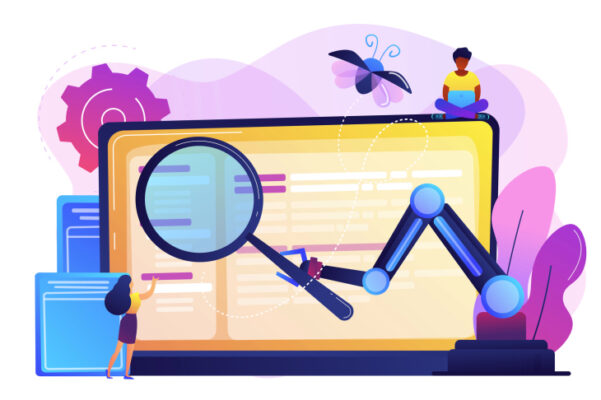Hailed as one of the greatest inventions after the Internet, blockchain technology has disrupted the industries across the board as it offers a secure, flexible, and easy to manage all financial transactions online. Over the past few years, blockchain has gained enormous traction and it has a far wider application that goes way beyond the notions of cryptocurrencies like Bitcoin and decentralized payment systems. Various sectors like retail, healthcare, and finance are benefiting from the distributed ledger technology of blockchain.
Given that the blockchain ledgers and entries cannot be updated or deleted, all transaction data that is recorded is permanent and stays in the system forever. So even though the decentralized system eliminates all the usual risks that come with the centralization of the system, the entire process still needs end to end testing as one discrepancy detected in one block can adversely affect the entire chain and disrupt the whole system. Any changes that are made to the said block is liable to make all the associated blocks invalid.
Importance of Software Testing for BlockChain Technology
In 2017, hackers were able to steal $32 million worth of Ether currency, one of the largest cryptocurrencies, by exploiting a weak node in the critical security of the wallet software. It is evident from this case example that it is likely that in-house testers fail to detect some vulnerable vector points in the system, which necessitates the use of an independent software testing company to validate the critical code.
Key Testing Types
To ensure that all the aspects of the blockchain application are in sync and are working properly, it is important to perform core tests during the development lifecycle. Testing the application not only ensures high quality of the product and warrants maximum test coverage, but it also mitigates the risks that are associated with the decentralized ledger system. Some of the core tests for blockchain software products include;
Functional testing – this is essentially a holistic testing process that tests the working of the mainline functions and evaluates their performance as part of the blockchain application.
API testing – the application programming interface testing process checks for the seamless interaction between the different modules and multiple applications within the blockchain ecosystem. The underlying purpose of this test is to make sure that all the requests and replies related to the application programming interface are managed and formatted properly.
Performance testing – the purpose of performance tests for the application is to detect any potential bottlenecks in the performance or any possible glitches. It also suggests solutions and measures mitigate the identified issues, and verifies if the application is ready for the market.
Node testing – in order to ensure smooth cooperation and integration of all nodes in the blockchain application, all the heterogeneous nodes on the system network are tested independently.
In blockchain software development, the shift-left approach is gaining the attention of the best software testing companies. Conducting the testing process early in the development cycle is pertinent as it minimizes the size and impact of the issues. However, if the problem is discovered later, it can prove to be detrimental to the company.
Read Dive is a leading technology blog focusing on different domains like Blockchain, AI, Chatbot, Fintech, Health Tech, Software Development and Testing. For guest blogging, please feel free to contact at readdive@gmail.com.





